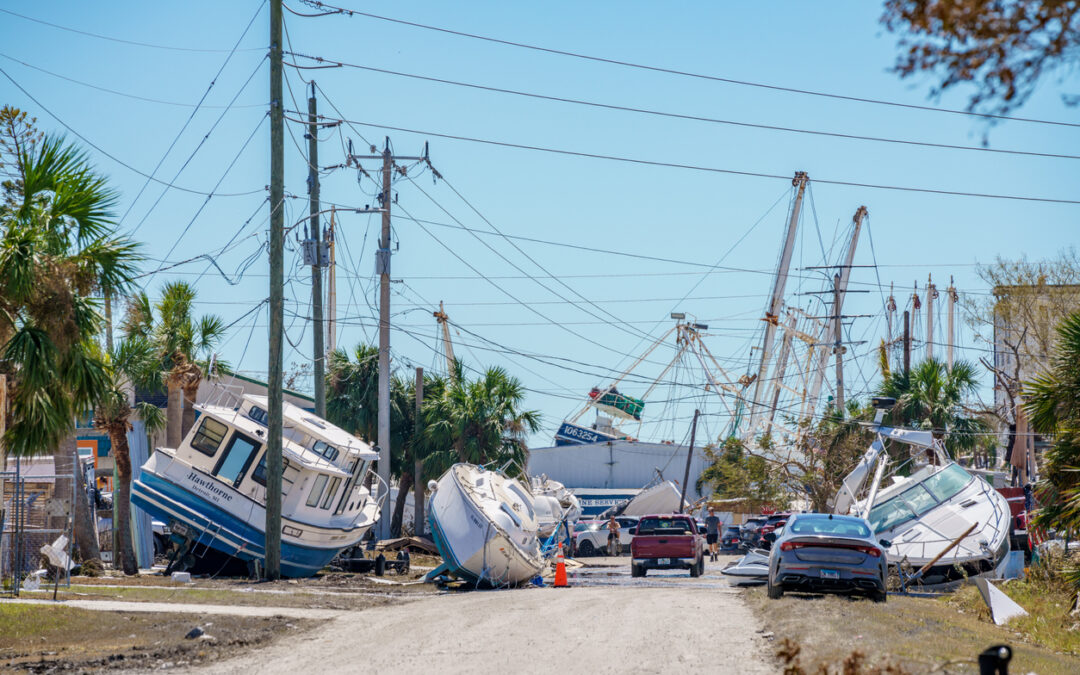Securing federal funding during disaster recovery is often contingent upon a comprehensive understanding of FEMA Project Worksheets (PW) and Hazard Mitigation Proposals (HMP). These essential components play a pivotal role in accessing crucial financial assistance for rebuilding and fortifying communities in the aftermath of disasters. This blog unravels the significance of FEMA PWs and HMPs, shedding light on their development, submission process, and the invaluable role a Disaster recovery consulting firm plays in navigating this complex terrain.
The Significance of FEMA Project Worksheets
FEMA Project Worksheets (PW) are the backbone of the FEMA Public Assistance Grant Program. They serve as detailed documentation of the scope of work, costs, and eligible expenses associated with a specific project. Properly developed PWs are essential for accessing federal funding to restore critical infrastructure such as schools, hospitals, roads, bridges, and public buildings. Thoroughness and accuracy in PW development are crucial, ensuring that every eligible cost is documented and aligned with FEMA guidelines.
Key Components of FEMA Project Worksheets
- Scope of Work: Clearly defining the scope of work is fundamental. This includes a detailed description of the project, its objectives, and the specific work to be undertaken.
- Cost Estimating: Accurate cost estimation is critical for successful PW development. This involves detailing the costs associated with labor, materials, equipment, and other project-related expenses.
- Eligibility Documentation: Ensuring that all costs documented in the PW are eligible for FEMA funding is imperative. This involves a meticulous review of FEMA guidelines to avoid discrepancies during the approval process.
- Project Validation: The PW must undergo a validation process, which includes FEMA’s review and approval. This step is vital for securing federal funding for the proposed project.
Navigating the Submission Process
The submission of FEMA Project Worksheets involves a structured process that demands attention to detail. Early engagement with FEMA and diligent collaboration with a Disaster Recovery Consulting firm can significantly streamline this process. By understanding the intricacies of FEMA requirements and deadlines, communities can ensure that their PWs are submitted promptly and by program guidelines.
The Role of Hazard Mitigation Proposals (HMP)
While FEMA PWs focus on immediate recovery needs, Hazard Mitigation Proposals (HMP) address long-term resilience. HMPs empower communities not only to recover but also to proactively implement measures that mitigate the impact of future disasters. These comprehensive proposals encapsulate a spectrum of projects and initiatives dedicated to hazard mitigation, creating a foundation for sustainable and resilient communities capable of navigating evolving threats with foresight and preparedness. By addressing the root causes of vulnerabilities, HMPs contribute to fostering enduring community resilience in the ever-changing landscape of disaster risks.
Importance of Professional Guidance
Navigating the development and submission of FEMA PWs and HMPs requires a specialized skill set. This is where the expertise of a Disaster Recovery Consulting firm becomes invaluable. These professionals bring a deep understanding of FEMA guidelines, eligibility criteria, and the intricate nuances of the submission process. Their role extends beyond documentation; they act as strategic partners, ensuring that PWs and HMPs are not only comprehensive but also optimized for success.
How a Disaster Recovery Consulting Firm Can Help
In the intricate landscape of FEMA programs, the support of a Disaster Recovery Consulting firm becomes a beacon of expertise and strategic guidance. These consultants are pivotal partners in steering communities toward successful disaster recovery and resilience building. Explore how their specialized skills can make a transformative impact on your path to federal funding.
- Expertise in FEMA Guidelines: Professionals in Disaster Recovery Consulting firms possess in-depth knowledge of FEMA guidelines, ensuring that every aspect of PW and HMP development aligns with program requirements.
- Project Optimization: These consultants specialize in optimizing projects for success. From thorough cost estimation to eligibility documentation, their goal is to enhance the chances of approval.
- Timely Submission: Meeting FEMA deadlines is critical. Disaster Recovery Consulting firms streamline the submission process, ensuring that PWs and HMPs are submitted in a timely manner, minimizing delays in securing funding.
- Strategic Planning: Beyond documentation, consultants offer strategic planning. They align projects with both immediate recovery needs and long-term resilience goals, maximizing the impact of federal funding.
- Navigating Complexities: The complexities of FEMA programs can be daunting. Consulting firms provide guidance, navigating the intricacies of the submission process and ensuring that communities are well-positioned for success.
Disaster Recovery Consulting for FEMA Assistance
Understanding FEMA Project Worksheets (PW) and Hazard Mitigation Proposals (HMP) is paramount for communities seeking federal funding for disaster recovery and long-term resilience. While these components serve distinct purposes, their effective development and submission require expertise and strategic planning. Enlisting the support of a Disaster Recovery Consulting firm is a proactive step that not only ensures compliance with FEMA guidelines but also significantly enhances the likelihood of securing vital federal assistance. Through meticulous documentation and strategic planning, communities can not only recover from disasters but also build a more resilient and sustainable future.
The professionals at D.A. Lamont Consulting stand at the forefront of this field. Armed with a profound understanding of FEMA guidelines, we meticulously align every aspect of Project Worksheets (PW) and Hazard Mitigation Proposals (HMP) with program requirements. Our specialization in optimizing projects for success, ensuring timely submissions, providing strategic planning, and navigating the complexities of FEMA programs positions us as invaluable partners in steering communities toward successful disaster recovery and long-term resilience. As you embark on your FEMA journey, consider making D.A. Lamont Consulting your trusted ally in unlocking the full potential of federal funding. Contact us to learn more.

